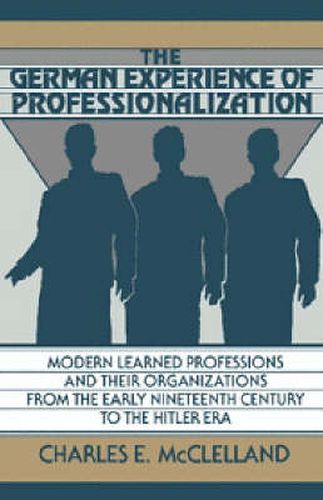Readings Newsletter
Become a Readings Member to make your shopping experience even easier.
Sign in or sign up for free!
You’re not far away from qualifying for FREE standard shipping within Australia
You’ve qualified for FREE standard shipping within Australia
The cart is loading…






Modern learned professions (medicine, law, teaching, engineering, and others) developed in central Europe just as vigorously as in England or America. Yet their close relationship with state power–more typical of the world development of professions than the Anglo-American model–led to a different historical experience of professionalization. This work is the first to explore that experience in a comprehensive way from the time when modern learned professions arose until the eve of World War II. Based on the history and surviving records of German professional organizations, this work shows how the learned professions emerged gradually in the nineteenth century from the shadow of strong state regulation to achieve a high degree of autonomy and control over professional standards by the First World War. By studying professional groups collectively, it gives a more contoured picture of their fate under National Socialism than works dedicated primarily to the phenomenon of fascism itself.
$9.00 standard shipping within Australia
FREE standard shipping within Australia for orders over $100.00
Express & International shipping calculated at checkout
Modern learned professions (medicine, law, teaching, engineering, and others) developed in central Europe just as vigorously as in England or America. Yet their close relationship with state power–more typical of the world development of professions than the Anglo-American model–led to a different historical experience of professionalization. This work is the first to explore that experience in a comprehensive way from the time when modern learned professions arose until the eve of World War II. Based on the history and surviving records of German professional organizations, this work shows how the learned professions emerged gradually in the nineteenth century from the shadow of strong state regulation to achieve a high degree of autonomy and control over professional standards by the First World War. By studying professional groups collectively, it gives a more contoured picture of their fate under National Socialism than works dedicated primarily to the phenomenon of fascism itself.